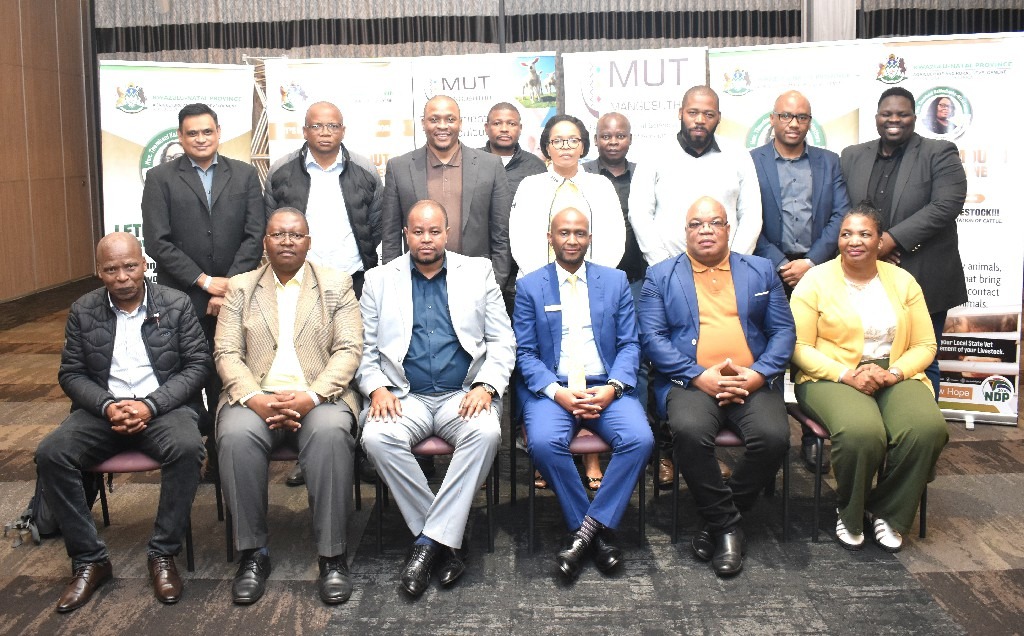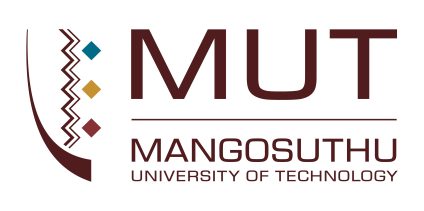
Following the initial interaction between Dr Karabo Molomo, Senior Lecturer, Department of Agriculture, and MEC Department of Agriculture and Rural Development (DARD), Thembeni KaMadlopha-Mthethwa (MPL) in February this year in Durban, where they discussed possible solutions to challenges faced by the University’s Department in securing placement opportunities for all Agricultural students, delegations from the University and the DARD met off campus to discuss a possibility of a collaborative relationship that would benefit them, and the community, in the long run, hence the description of it as “strategic”. The MUT delegation was led by the Acting Deputy-Vice Chancellor: Resources and Planning, Dr Bheka Ntshangase; the DARD delegation was led by Zibusiso Dlamini, Head of DARD.
In a cordial atmosphere that revealed the necessity for this kind of relationship from the early stages of the meeting, both parties pointed out that the relationship would have far-reaching impact on most people who are linked to both organisations. At the core of the discussion, from an MUT perspective, was the acquisition of land, or a farm, on which the University students could do their practicals. University students had this facility when they were still using Owen Sthole College of Agriculture. In 1991, “the Technikon took a decision to rationalise, and the training was taken back to the main campus in Umlazi Township, Durban”, said Dr Eric Mthembu, the Head of the Department of Community Extension that provides a Diploma in Agricultural Extension and Sustainable Food Systems. This is when the reality about the lack of a farm at the main campus for practicals came to a head. Now the University has to take action, and it believes that DARD will help. Now the University needs a farm where staff and students can also conduct research. In making their case, Dr Mthembu made a presentation in which he explained the purpose of the meeting, which was to “identify areas of common interest that will be of mutual benefit to KwaZulu-Natal Department of Agriculture and Rural Development, and the University”. Dr Mthembu continued: “In the long term, we would like to relocate to the government land that will be identified. It is for us to discuss the issue so that we can get close to where the practicals are being done. There will be a mutual benefit. This will result in a triple collaborative model which will impact interconnectedness among the University, research station and government industry,” said Dr Mthembu. The MUT suggested a possible research station and pointed out how beneficial that location could be.
Dr Mthembu also added that the proposed arrangements would have a positive impact on the curriculum of his department. He said a good curriculum is one that addresses the needs of the industry and provides solutions to the challenges that affect communities. Part of the curriculum improvement would involve providing students with WIL (Work-Integrated Learning) opportunities, allowing them to innovate, learn, and apply entrepreneurship skills. Dr Mthembu emphasised the need to reallocate resources to reduce hunger levels. “You need to eat. We need to be able to produce our own food. We must ensure that we produce enough food,” Dr Mthembu said.
Dr Mthembu also gave a historical background of his department and the University’s Department of Agriculture. Dr Mthembu also listed the programmes that his department offers.
Dr Mthembu informed the government delegation about the historical relationship between the University and MUT programmes. He said it was governed by an MoU, that lapsed. “But we are still working with the department at the lower level,” said Dr Mthembu.
The DARD delegation showed understanding for the University’s predicament and said that any agreement reached should benefit both parties.
Zibusiso Dlamini, Head of DARD, said that “it looks like we all agree that there should be an MoU. The principle for me is that we should all start on a new slate. The old MoU would have had a lapse date. Let us create something new. From my perspective, the technical team will comprise all the directors, ensuring a productive dialogue. Dr Fikile Qwabe will be a go-to person. We need to give ourselves some time frames.
At the end of the discussion, it was agreed that task teams would take the discussion forward. The MUT task team will be led by Dr Mthembu, while the DARD task team will be led by Dr Qwabe, who is the Chief Director.
